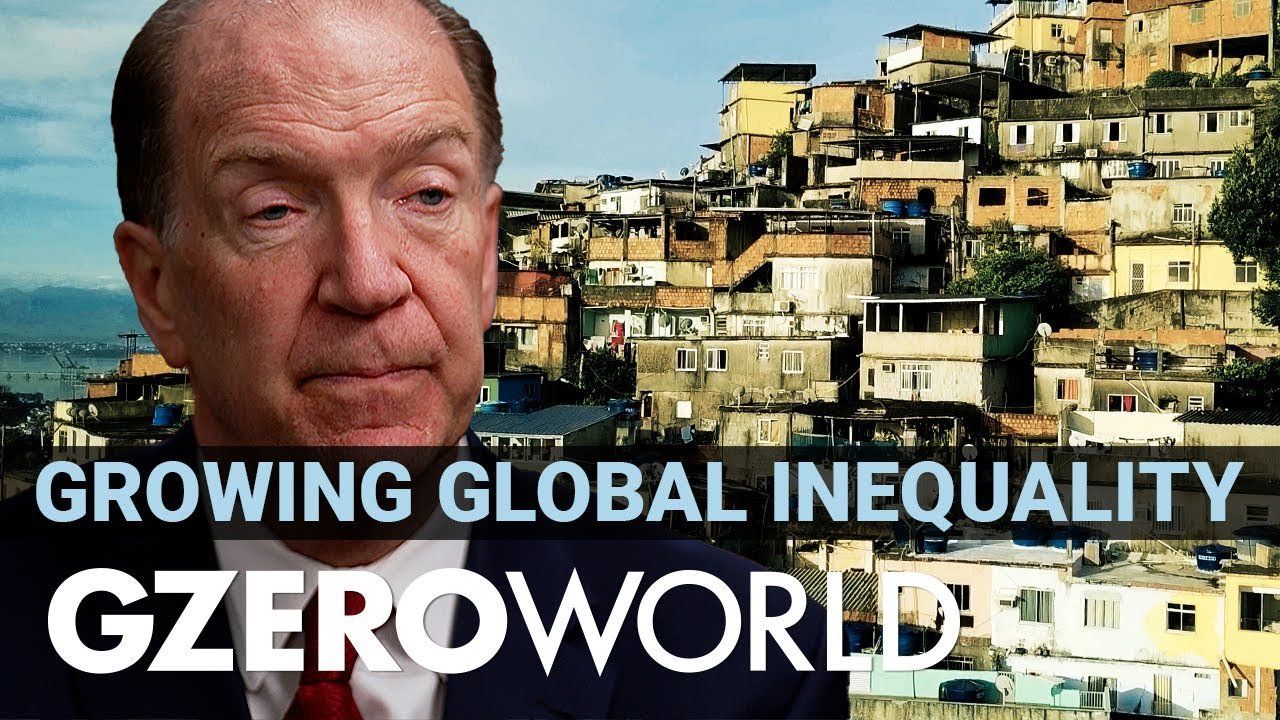GZERO World Clips
Debt limits of rich countries hurt poor countries' growth, says World Bank's Malpass

Debt limits of rich countries hurt poor countries' growth, says World Bank's Malpass | GZERO World

Does the global financial system need a major overhaul?
In his final interview on GZERO World as president of the World Bank Group, David Malpass discusses a serious problem with host Ian Bremmer: the consolidation of economic and political power in the hands of the wealthiest countries. The world is facing a massive debt crisis––60% of low-income countries are now in debt distress or dangerously close to it. The poorest countries are paying an average of 16% of revenue on servicing loans.
Decades of low interest rates and cheap goods, followed by the pandemic and runaway inflation led countries to borrow huge sums of money. But it didn’t happen in an equitable way. Wealthy nations like the US and the European Union pumped trillions into their economies to keep them afloat. But poor nations kept borrowing money they couldn’t afford to pay back.
“The poorer countries are not catching up, and we really want a world where the people in lower income levels actually get to grow faster,” Malpass tells Ian Bremmer. “That’s what creates stability."
Malpass says that the goal of the World Bank, and any value-based society, is faster growth in poorer countries so they can catch up with advanced economies and stabilize. And that means integrating the economies of developing countries better with the West, which can at odds with nationalist economic policies like “Buy America,” near-shoring, and inshoring.
“I think there’s plenty of room in a logical world to say we don’t want dependency,” Malpass stresses, “But we also want to have a vibrant, global marketplace that is competitive. And the US needs to lead and be the starting point for a lot of this rethinking of the global system.”
In this Quick Take, Ian Bremmer breaks down the growing tensions between the US and Iran, calling it "the next area of potential large-scale conflict where President Trump is interested in changing the facts on the ground."
392,000: The estimated number of people displaced across Mozambique by recent rain-induced floods. Severe flooding in the southern African nation, as well as in South Africa and Zimbabwe, has killed over 100 people.